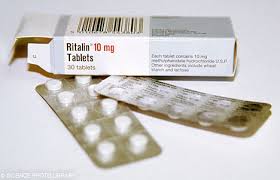5 Signs Someone You Love is Addicted to Stimulants

Someone who is suffering from stimulant addiction may be very paranoid at times.
Millions of Americans are addicted to stimulants such as cocaine, methamphetamine, or prescription drugs commonly used to treat ADD, ADHD, or obesity. Overcoming an addiction to stimulants can pose many challenges along the way, but it’s the only truly safe solution to this potentially deadly situation. Early recognition of the signs that someone you love many be addicted to stimulants may make the difference between whether that individual gets treatment before the effects of the addiction take over.
The most common signs of stimulant addiction include:
Paranoia
Stimulants are commonly blamed for causing paranoia that is uncontrollable in the user. People who become addicted to stimulants often suffer serious bouts of paranoia, sometimes believing that people are out to get them or that they are in some sort of danger. According to Narconon, those addicted to stimulants such as amphetamines often exhibit paranoia similar to that of a paranoid schizophrenic.
Reduction of Social Inhibitions
Stimulant abuse causes the user to feel as if he or she is unstoppable. Social inhibitions are greatly reduced during the time when the drug is in full effect and this can lead to a number of potential consequences including risky behavior, promiscuous sexual activity and overzealous ideas of personal power or abilities.
Malnutrition or Weight Loss
Stimulants are sometimes prescribed for the treatment of obesity; as such, those who abuse stimulants or become addicted are often prone to extreme weight loss and malnutrition. Sustained use of stimulants can lead to serious side effects on the human body associated with a lack of eating paired with overexertion.
Hostility or Aggressiveness
People who are addicted to stimulants will often become very hostile or aggressive when they don’t have the drug and they may act similarly when they have the drug due to the reduction of social inhibitions that is paired with the drug use. According to the National Institute on Drug Abuse, stimulant addiction is often responsible for changes in the thought processes within the brain which can lead to hostility and paranoia.
Behavioral Changes
Many different behavioral changes will be evident in an individual who is addicted to stimulants. The user may act upbeat or energetic when the drug is being used; this period is often followed by long periods of a depressed or lethargic state when the drug is not being used. Anger and hostility mount in an effort to get more of the drug and a lack of desire to care for one’s self is common as the addiction continues to spiral out of control. Sleep patterns and eating patterns change as the user becomes more accustomed to using the drug and less focused on normal routines.



